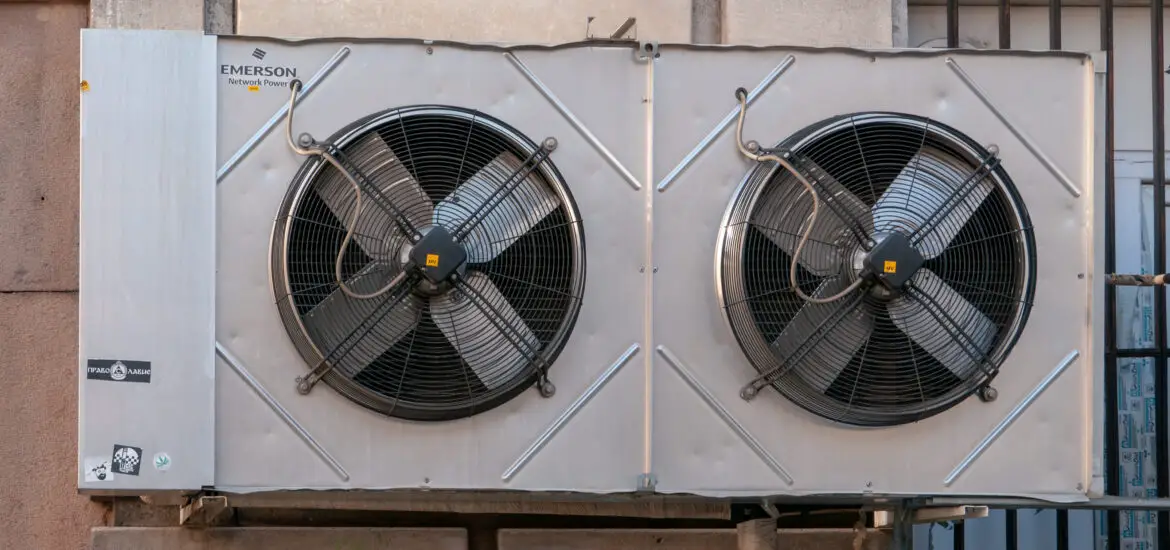When the topic is ‘condenser unit not running,’ you want answers, right? In this guide, we’ll walk you through the issues that might cause your condenser unit to stop working, and solutions to get it up and running again.

Table of Contents
Quick Answer: Common Reasons Why Your Condenser Unit Might Not be Running
So why might your condenser unit stop? Common culprits include power issues, thermostat settings, capacitor failures, fan malfunctions, or refrigerant leaks. Don’t fret – we’ll get to the bottom of each!
Basic Troubleshooting a Condenser Unit Not Running
Before you hit panic mode with a non-working condenser unit, there are a few quick checks you can run yourself. Let’s untangle some simple yet common issues that can trick you into thinking your unit has gone kaput.
Power Issues and Your Condenser Unit
Electricity is the lifeblood of your condenser unit. When power goes awry, so does your AC. We’ll dig into this, but remember, electricity is not a DIY buddy, always practice safety.
Checking for Power Issues
Is your condenser unit silent? Start by checking your breaker. If it’s tripped, reset it. But if it keeps tripping, that’s a signal of an underlying issue. Call a professional for a proper fix.
Safety Measures When Dealing With Electrical Issues
Handling electricity requires care. Use rubber gloves, keep the area dry, and most importantly, never tamper with wiring if you’re unsure. It’s better to be safe than sorry.
Inspecting Your Thermostat
Did you know a misbehaving thermostat can fool you into thinking your condenser unit isn’t working? Let’s check how.
Setting Your Thermostat Correctly
Ensure your thermostat is set to cool and the temperature is below the room’s temperature. If it’s all good but the unit isn’t running, it’s time to dig deeper.
Potential Thermostat Malfunctions
Thermostats, just like other electronic gadgets, aren’t immune to glitches. It might not be sending the right commands to your condenser unit. But, before you run off to buy a new one, let a pro have a look!
Identifying Common Problems With Condenser Units
Sometimes, the trouble with your condenser unit might be a bit more complex than a tripped breaker or a thermostat setting. From faulty capacitors to rebellious fans, let’s shine a light on the usual suspects causing your unit’s downtime.
Understanding the Role of a Capacitor in a Condenser Unit
Ever hear of a capacitor? It’s a component that stores and releases electrical energy, kick-starting the motor in your condenser unit. When it fails, your unit can’t start running.
Symptoms of a Failing Capacitor
Like a car that refuses to start on a cold morning, a condenser unit with a bad capacitor will hum but won’t start. If you’re witnessing this, the capacitor might be the villain.
How to Check if Your Capacitor is Defective
A bulging or leaky capacitor spells trouble. Remember, replacing a capacitor is not a job for a novice. For your safety, get a professional to replace it.
Condenser Fan Problems
The fan in your condenser unit plays the crucial role of expelling heat. If it goes on strike, your unit might overheat and shut down.
How a Malfunctioning Fan Affects Your Condenser Unit
When your fan isn’t working, the condenser can’t release heat. This causes your unit to overheat and trip your breaker, leaving you in a sweaty situation.
Identifying and Troubleshooting Fan Issues
Signs of fan trouble include loud noises, slow-spinning, or not spinning at all. Fan issues require professional intervention. Don’t risk a DIY gone wrong!
Refrigerant Leaks and Your Condenser Unit
Refrigerant is the magic juice that cools your air. But when it leaks, it can cause your unit to stop running.
Recognizing Signs of a Refrigerant Leak
Ice on your condenser unit or a hissing sound can point to a refrigerant leak. More tell-tale signs are a drastic hike in your electricity bill and warm air blowing out of your vents.
How to Confirm a Refrigerant Leak
If you suspect a leak, it’s best to call in a pro. They have the tools and know-how to confirm a leak and fix it properly.
Check out these other related articles…
Condenser Not Turning On: 6 Proven Solutions
Difference Between Condenser and Heat Exchanger: Easy Guide
Condenser and Evaporator in Refrigeration System: Easy Guide
Condenser Temperature: Your Comprehensive 411 Guide
Condenser Not Running: 6 Simple DIY Fixes
Condenser Unit Repair and Maintenance
It’s not just about fixing a problem; it’s also about preventing it. Regular care and timely professional attention can keep your condenser unit purring smoothly. Let’s take a look at why maintenance matters and when it’s time to ring the repair experts.
The Importance of Regular Condenser Unit Maintenance
Prevention is better than cure, and that couldn’t be truer for your condenser unit. Regular maintenance can keep many of these issues at bay.
Key Maintenance Tasks for Your Condenser Unit
Cleaning, replacing air filters, and regular inspections are some maintenance tasks that can keep your unit humming happily. Sounds manageable, doesn’t it?
The Role of a Professional in Condenser Unit Maintenance
While you can handle some tasks, a professional has the training to spot potential issues before they become major headaches. A regular checkup from a pro is an investment in your comfort.
When to Call a Professional for Condenser Unit Repairs
When your condenser unit isn’t running, it’s okay to do some light troubleshooting. But remember, many issues need professional attention.
Signs Your Condenser Unit Needs Professional Attention
Repeated breaker trips, continuous running, loud noises, or no cool air are signs your unit needs professional help. It’s better to call a pro than to risk further damage.
The Process of Professional Repair
A pro will diagnose the problem, provide you with a quote for the repair, and once approved, they’ll fix your unit. Simple, isn’t it?